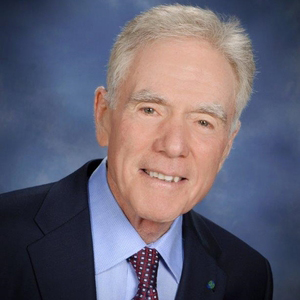Ralph Snyderman, MD is Chancellor Emeritus, Duke University and James B. Duke Professor of Medicine in the Duke University School of Medicine. He served as Chancellor for Health Affairs and Dean of the School of Medicine at Duke University from 1989 to July 2004 and led the transition of this excellent medical center into an internationally recognized leader of academic medicine. He oversaw the development of the Duke University Health System, one of the most successful integrated academic health systems in the country, and served as its first President and Chief Executive Officer. Read his full bio.
Interview with Ralph Snyderman of Duke University
Q: What are some of the critical contributions that academic institutions and medical centers are making to implement and accelerate precision medicine?
A: Over the past decade, the field of precision medicine has created technologies enabling far more personalized and effective health care delivery. Many of the most dramatic advances have come in the field of oncology but targeting care to the needs of the individual is rapidly achieving broader applications. A main challenge for health care is the effective clinical adoption of precision medicine capabilities to improve outcomes. Academic health institutions are vital for the broad implementation of precision medicine by:
- Performing research enabling new technologies
- Validating new technologies
- Adopting precision medicine technologies into clinical practice and developing standards of care
- Collecting data that can be curated and analyzed to continue to refine the best clinical utilization of emerging technologies
- Training the workforce needed for precision medicine
The core missions of academic health institutions are perfectly aligned with the needs for the field of precision medicine but they must recognize and embrace this opportunity.
Q: How can we translate the learnings from these contributions to create a successful next-generation workforce?
A: Academic health institutions play a broad role in the introduction and utilization of precision medicine ranging from enabling research to creating the clinical teams and processes involved in care, establishing appropriate comprehensive data bases, and analyzing the clinical data. Each of these functions requires well-trained individuals. By academic health centers becoming operational in all these areas, the nature and structure of the workforce to adopt and advance precision medicine will be defined. As educational institutions, it behooves academic medicine to evaluate the needs for the precision medicine workforce and to develop and expand required educational opportunities. It is essential that leaders in academic medicine accept the vital role that academic institutions must play in defining a precision medicine workforce and identifying the training required to meet the growing need.
I suggest that a broad based blue ribbon taskforce be created to quantify the needs for a growing precision medicine workforce. Based on the taskforce recommendations, changes in educational curricula as well as the development of new training pathways could be determined. A comprehensive needs assessment for the workforce underlying the advancement of precision medicine is a vital need given the rapid expansion of the field and its potential to improve health care delivery.
The Precision Medicine World Conference (PMWC), in its 17th installment, will take place in the Santa Clara Convention Center (Silicon Valley) on January 21-24, 2020. The program will traverse innovative technologies, thriving initiatives, and clinical case studies that enable the translation of precision medicine into direct improvements in health care. Conference attendees will have an opportunity to learn first-hand about the latest developments and advancements in precision medicine and cutting-edge new strategies and solutions that are changing how patients are treated.
See 2019 Agenda highlights:
- Five tracks will showcase sessions on the latest advancements in precision medicine which include, but are not limited to:
- AI & Data Science Showcase
- Clinical & Research Tools Showcase
- Clinical Dx Showcase
- Creating Clinical Value with Liquid Biopsy ctDNA, etc.
- Digital Health/Health and Wellness
- Digital Phenotyping
- Diversity in Precision Medicine
- Drug Development (PPPs)
- Early Days of Life Sequencing
- Emerging Technologies in PM
- Emerging Therapeutic Showcase
- FDA Efforts to Accelerate PM
- Gene Editing
- Genomic Profiling Showcase
- Immunotherapy Sessions & Showcase
- Implementation into Health Care Delivery
- Large Scale Bio-data Resources to Support Drug Development (PPPs)
- Microbial Profiling Showcase
- Microbiome
- Neoantigens
- Next-Gen. Workforce of PM
- Non-Clinical Services Showcase
- Pharmacogenomics
- Point-of Care Dx Platform
- Precision Public Health
- Rare Disease Diagnosis
- Resilience
- Robust Clinical Decision Support Tools
- Wellness and Aging Showcase
See 2019 Agenda highlights:
- Five tracks will showcase sessions on the latest advancements in precision medicine which include, but are not limited to:
- AI & Data Science Showcase
- Clinical & Research Tools Showcase
- Clinical Dx Showcase
- Creating Clinical Value with Liquid Biopsy ctDNA, etc.
- Digital Health/Health and Wellness
- Digital Phenotyping
- Diversity in Precision Medicine
- Drug Development (PPPs)
- Early Days of Life Sequencing
- Emerging Technologies in PM
- Emerging Therapeutic Showcase
- FDA Efforts to Accelerate PM
- Gene Editing / CRISPR
- Genomic Profiling Showcase
- Immunotherapy Sessions & Showcase
- Implementation into Health Care Delivery
- Large Scale Bio-data Resources to Support Drug Development (PPPs)
- Microbial Profiling Showcase
- Microbiome
- Neoantigens
- Next-Gen. Workforce of PM
- Non-Clinical Services Showcase
- Pharmacogenomics
- Point-of Care Dx Platform
- Precision Public Health
- Rare Disease Diagnosis
- Resilience
- Robust Clinical Decision Support Tools
- Wellness and Aging Showcase
- A lineup of 450+ highly regarded speakers featuring pioneering researchers and authorities across the healthcare and biotechnology sectors
- Luminary and Pioneer Awards, honoring individuals who contributed, and continue to contribute, to the field of Precision Medicine
- 2000+ multidisciplinary attendees, from across the entire spectrum of healthcare, representing different types of companies, technologies, and medical centers with leadership roles in precision medicine













